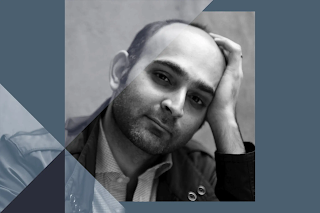In his latest work, “The Last White Man,” the award-winning writer Mohsin Hamid imagines a world that is very like our own, with one major exception: On various days, white people wake up to discover that their skin is no longer white. It’s a heavy premise, but one of Hamid’s unique talents as a novelist is his ability to take on the most difficult of topics — racism, migration, loss — with a remarkably light touch.
“How do you begin to have these conversations in a way that allows everybody a way in?” he asks. “How do you talk about these things in a way that’s open to everyone?” What sets Hamid apart is his capacity to do just that — both in his fiction and in his conversation with Ezra Klein. Hamid joins the latest episode of the New York Times podcast The Ezra Klein Show, to discuss race, identity, algorithmic thinking, how to envision optimistic futures in dark times and more.
You can listen to this episode of The Ezra Klein Show here.
The full transcript of the interview can be found here, with highlights below:
Ezra Klein
Tell me about some subtleties of what you noticed that you lost. Because it’s interesting, I mean, you’re not categorically, in the way people construct those categories, white. So to say you lost whiteness is to say you lost, as you’re suggesting, an ability to move through society. What were some subtleties of that? Beyond airports, beyond trains, what happened as the way people understood you changed?
Mohsin Hamid
Well, as a brown guy with a Muslim-sounding name, I certainly wasn’t white. But when I think about how race works in people’s lives, in my life, I’d been able to get the job I wanted and go to universities I wanted and mostly date the people I wanted, and life hadn’t felt particularly constrained. What changed was the idea that there was something attaching itself to me and to my kind, in a way, that was limiting. Suddenly, the idea of being able to travel easily, of my parents visiting me in America, of managing to live this kind of existence between different cultures and different countries became much more difficult to imagine.
I had moved to London the summer of 2001, and my first trip back to the U.S. a couple of months later, it was like an entirely different country. I remember strange things would happen in the sense of conversations with people’s families about terrorism and Muslims and, you know, you’re not that kind. It was strange because it was as though my category of person, which, while not white, was not particularly important, and therefore not really deserving of much attention and allowed to pass, had become a category that was deserving of more attention and given certain values.
And I was picking up on strangenesses, my own reluctance when I was traveling in the non-coastal parts of America or rural parts of America to tell people where I was, quote unquote, from. The idea of going down to the hotel bar or hotel restaurant in some more, from my mind, remote part of America suddenly being kind of more of a choice — should I do this. And the stories of so many friends. You know, somebody waking up and having the F.B.I. bang on their door, or somebody not being allowed to board a flight to the country, or people breaking up, relationships coming to an end. It was there, I guess, in the ether. I mean, it was all around.
Ezra Klein
I wonder if this is at least one possible definition of this kind of whiteness. And I think it’s one that people who have it, including very much me, probably underrate its importance. But I want to try it on you, that this kind of whiteness is the absence of limiting or prejudicial assumptions about you as you move through the world.
Mohsin Hamid
I think that’s right. I mean, maybe not a complete absence, but I guess it’s an idea that you are the default setting, that you are what is human, that to be you is to sort of come across as normal, in a way. And of course, you could be dangerous, you could be threatening. You could be many things, but the starting assumption is human.
And I think what begins to happen as you move away from that is having to overcome assumptions that, in some ways, you are not normal, you are not human. You don’t get the benefit of the doubt. And in that sense, whiteness is — the invention of whiteness or this category of whiteness is perhaps more rooted in needing to have another category. In other words, if you didn’t need for there to be people who didn’t have the category of human, you wouldn’t need whiteness as a subcategory that meant human.
Check out the entire interview here.
 |
| Writer Mohsin Hamid |
Comments
Post a Comment
Thank You for your input and feedback. If you requested a response, we will do so as soon as possible.